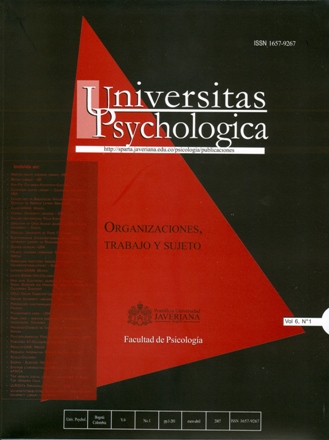Abstract
Las transformaciones del trabajo implican disminución del empleo y consolidación de otras modalidades de trabajo con implicaciones psicosociales. La investigación exploró, a partir de entrevistas a profundidad, estrategias de aprendizaje que, según profesionales recién egresados y empleadores, facilitan la empleabilidad en cinco ciudades colombianas. Los resultados muestran que las estrategias de aprendizaje utilizadas por los profesionales no necesariamente son conscientes. Los profesionales exitosos usan estrategias cognitivas de elaboración y transferencia, estrategias relacionales para visibilidad y generación de conocimientos en interrelaciones, y estrategias metacognitivas de regulación en su orden. Los profesionales control utilizan estrategias cognitivas de elaboración y transferencia sin traducirlas necesariamente en acciones. Los empleadores destacan estrategias cognitivas de elaboración, metacognitivas de regulación, y relacionales de visibilidad y establecimiento de relacionesThis journal is registered under a Creative Commons Attribution 4.0 International Public License. Thus, this work may be reproduced, distributed, and publicly shared in digital format, as long as the names of the authors and Pontificia Universidad Javeriana are acknowledged. Others are allowed to quote, adapt, transform, auto-archive, republish, and create based on this material, for any purpose (even commercial ones), provided the authorship is duly acknowledged, a link to the original work is provided, and it is specified if changes have been made. Pontificia Universidad Javeriana does not hold the rights of published works and the authors are solely responsible for the contents of their works; they keep the moral, intellectual, privacy, and publicity rights. Approving the intervention of the work (review, copy-editing, translation, layout) and the following outreach, are granted through an use license and not through an assignment of rights. This means the journal and Pontificia Universidad Javeriana cannot be held responsible for any ethical malpractice by the authors. As a consequence of the protection granted by the use license, the journal is not required to publish recantations or modify information already published, unless the errata stems from the editorial management process. Publishing contents in this journal does not generate royalties for contributors.


